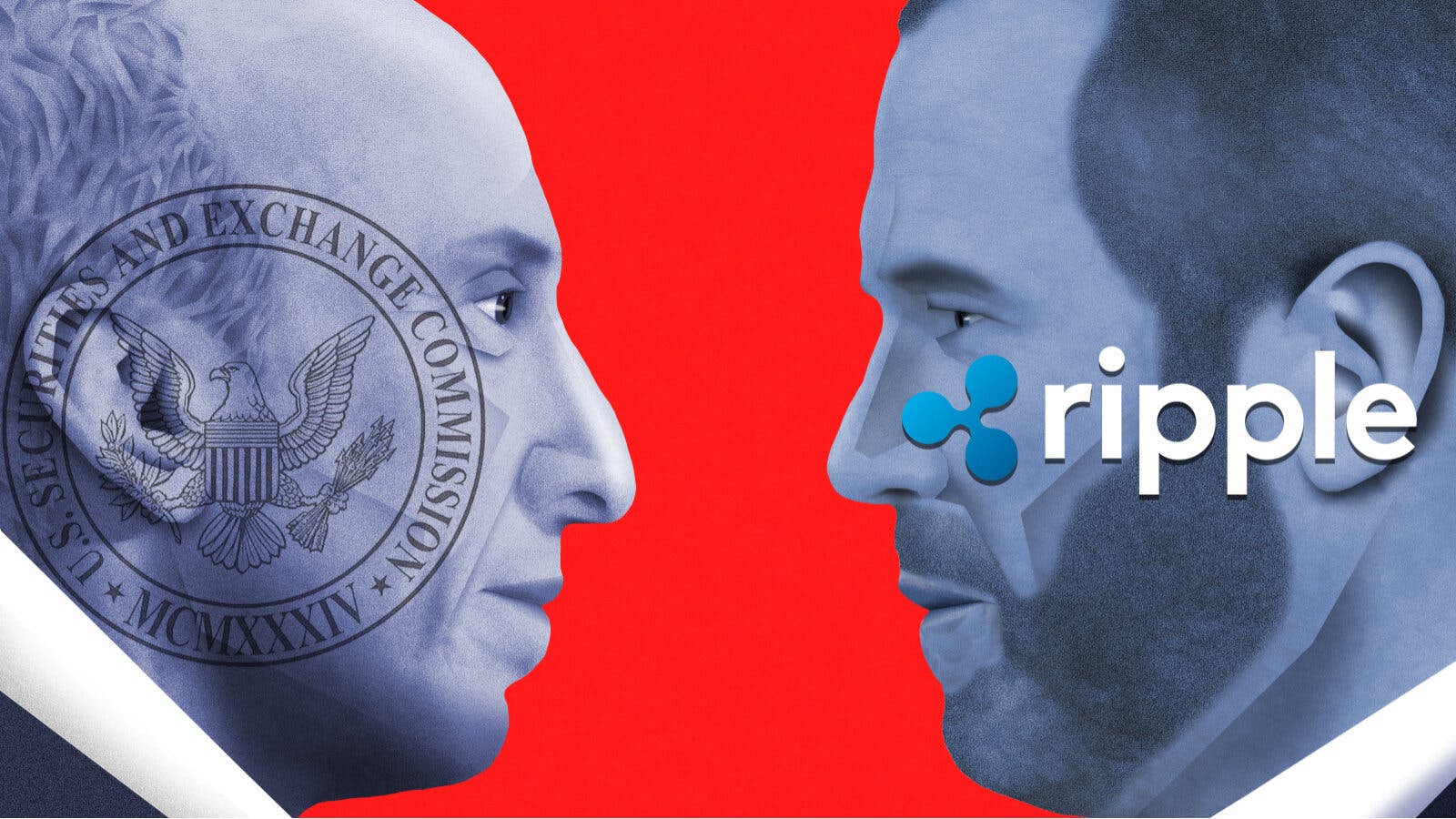Ripple, SEC Final Briefs Provide Case Summary
Both the SEC and Ripple said Friday they had enough legal ammunition to win the day over the sale of XRP in 2013

Blockworks exclusive art by Axel Rangel
The Securities and Exchange Commission (SEC) and Ripple Labs exchanged their last legal barbs as they seek summary judgment in an ongoing case that could have wide-reaching ramifications over the definition of crypto as a security.
In their final briefs, both parties accused each other of misapplying US securities law. The case centers on allegations by the regulator that Ripple and its current and former executives conducted an illegal securities offering of XRP tokens almost a decade ago.
The SEC said in its brief Ripple did not dispute a number of facts including that the crypto firm’s offerings are considered “investment contracts” — a vehicle the SEC alleges Ripple used to raise $2 billion for itself.
The agency has argued since 2020 that Ripple’s sale of XRP in 2013 was in direct violation of the Securities Act of 1933 and the Supreme Court’s ruling in SEC v. W.J. Howey Co — a longstanding court decision used to define what constitutes a security.
It also said that Ripple does not dispute claims it was an “enterprise” and that it did not separately manage the funds it had raised from investors but instead pooled those investments with a promise of a return — another major point in the interpretation of Howey.
“Defendants made an avalanche of public statements representing that they would take steps to ‘increase XRP’s value,’” the regulator said. “Partly because of Ripple’s ‘giant pile’ of XRP, potential and actual investors understood that Ripple was financially compelled to do just that.”
Ripple says none of the essential ingredients of Howey present
Ripple pushed back in its own brief arguing the SEC cannot adequately demonstrate XRP was an offer or sale of an investment contract from 2013 until the time the SEC brought its case against the firm two years ago.
“This case turns on statutory interpretation: specifically, whether the SEC can misapply the statutory phrase ‘investment contract’ to cover transactions that have none of the essential ingredients,” Ripple said.
The firm said that in every case following the Howey ruling more than 75 years ago, the definition of a security involved one or more contracts imposing “post-sale rights” and obligations on the parties.
The regulator claims to have found certain cases where the “essential ingredients” of an investment contract discussed in Howey were not present, but the claims do not hold up to scrutiny, Ripple said.
The Howey test is defined as 1. An investment of money; 2. In a common enterprise; 3. A reasonable expectation of profit; 4. Derived from the efforts of others.
“Ultimately, the SEC cannot point to a single case finding an investment contract without the ‘essential ingredients’ identified in Howey, Ripple argued. “And it is undisputed that this case has none of them.”
The proof is in the pudding
In a response to the regulator’s filing on Friday, Delphi Lab’s general counsel Gabriel Shapiro said the SEC’s take on Howey case law would likely “win the day” because investment contracts under the law “are not, and do not” require the presence of legal contracts beginning with the issuer or promoter and the buyer.
“If only we had courts stacked with originalist judges, Ripple’s pre-1933-Act blue-sky-based case law arguments would be incredibly potent,” Shapiro said.
Gabriel Shapiro is arguing the court is likely to agree with the SEC’s arguments, which have an “activist view” of the law.
Under this political framing, judges try to mold the existing text into today’s circumstances, Ian Corp, commercial litigator and crypto advisor at law firm Agentis told Blockworks in an email. Originalist judges, meanwhile, look at the plain text and apply the law as it is written.
When Howey was formed in the 1940s, investment contracts were done by hand. Today, the analysis has shifted more toward whether there is a relationship — not necessarily evidenced by a written contract — between a token issuer and an investor that meets the Howey test, Corp said.
“If the circumstances show that such a relationship exists under the Howey test then the token issuer is required to register with the SEC.”
If Ripple were to lose, XRP will be deemed a security which would set the precedent that tokens issued in a similar fashion are required to register with the SEC as well.
That would be a “considerably expensive cost to bear,” for future crypto firms Corp said.
Get the news in your inbox. Explore Blockworks newsletters:
- The Breakdown: Decoding crypto and the markets. Daily.
- 0xResearch: Alpha in your inbox. Think like an analyst.






